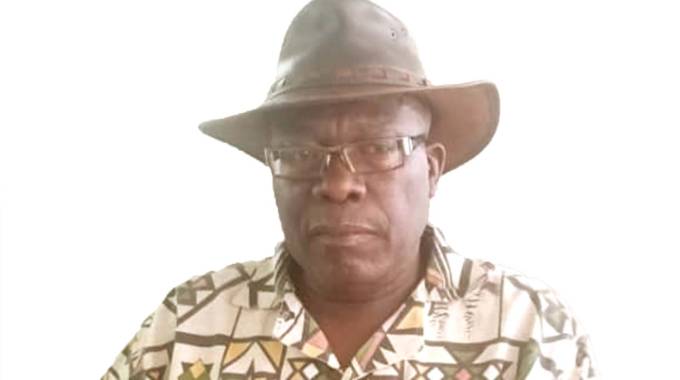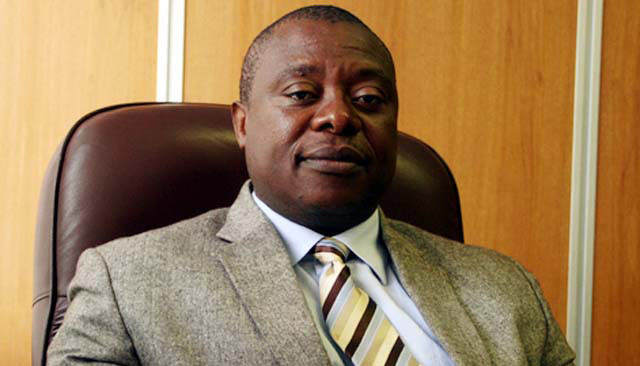
The Sunday Mail

THIS week, our Senior Reporter TENDAI CHARA (TC) discusses with Cde Benjamin Dyiraku munda (BD), one of the thousands of brave youths who left school and the comforts of their parents’ homes to join the bitterly-fought liberation struggle.

TC: Cde, if you can introduce yourself to the readers.
BD: My name is Benjamin Dyirakumunda. I was born in 1959 in Murehwa and my Chimurenga name was Tafirenyika Magorira. I grew up in Murehwa and went to Manyika Primary School in Uzumba. I did my Grade Seven in 1972. I could, however, not continue with my education due to the bottleneck system which was put in place to deter as many black children as possible from proceeding to secondary education.
After failing to get a place for secondary education, I spent the whole of 1973 at home, doing nothing. I however, had two elder brothers who were in Harare. They ran around seeking for a Form One place for me in Harare and I got a place at Highfield Community School, also known as Highfield Mhuriimwe, in 1974.
During the school holidays, I went to Murehwa where I was shocked to discover that our village had been turned into protected area, then commonly referred to as Makeep. The war was intensifying in our area and the Rhodesian government was bent on limiting our freedom and interaction with freedom fighters. One day, the freedom fighters somehow sneaked into the protected village and clandestinely addressed us.
The following morning, my father woke me up early in the morning and told me that together with my younger brother Davison, we were to immediately leave for Harare. He did not want us to interact with the freedom fighters who were now active in the area. He knew that I would one day be persuaded to abandon my studies and go to war. He wanted me to finish my education. We went to Manyika Business Centre where we boarded the bus to Harare. As you will find out later in my narration, I only returned to Murehwa well after Independence. When we were in Harare, we often discussed with my brother the need for us to leave school and go to Mozambique.
TC: Why were you so eager to go to Mozambique?
BD: We often tuned in to Radio Maputo and we were well aware of the need for youngsters like us to join the war and fight the white-minority government.
Also at Highfield Mhuriimwe, we had some peers who were politically conscious and were itching to go to Mozambique. Some of my classmates were former Mazowe and Goromonzi High school pupils who had been expelled for their political activism.
We had in our class two pupils who had travelled all the way to Mutare in a futile attempt to cross into Mozambique.
After arriving in Mutare, they were rounded up by Rhodesian soldiers, severely beaten and brought back to Harare.
The students had to report to their nearest police station three times a week. I was staying with my brother in Glen Norah and I would cycle to school.
During the night, when we tuned in to Radio Maputo, we did so whilst covering ourselves with blankets.
TC: Why were you listening to Radio Maputo under the cover of blankets?
BD: Listening to Radio Maputo was a criminal offence. I remember listening to broadcasts by Cde Webster Shamhu, then known as Charles Ndlovu. Also, we were inspired by the Chimurenga songs that were broadcast on the station.
TC: Please carry on with your narration.
BD: I grew impatient with the Rhodesian colonial system. Some of the boys from our school went to Mozambique and I was asking myself why I was still in school. I had a friend and classmate of mine called Cairo Mhandu. Cde Mhandu later on became a Member of Parliament in independent Zimbabwe, representing Mazowe North in Mashonaland Central.
Cde Mhandu had attempted to go to Mozambique, but his group was intercepted along the way.
I discussed with him and we agreed that we were going to Mozambique. We agreed to use the money that our parents had given us for school fees to travel to Mozambique, via Mutare.
My cousin, George Mudimu, also came into the picture. George, who was much older than us, told us that he knew a safe way that we could use to go to Mozambique.
He suggested that we drop-off from the train at Nyazura and then travel to Rukweza, where we were supposedly going to link with the freedom fighters.
One fine day, we boarded a train and disembarked in Nyazura. We then went to Rukweza where we were shocked to discover that George suggested this route simply because he wanted to see his girlfriend who lived in the Rukweza area.
When we failed to locate freedom fighters in the area, we decided to continue with our journey to Mutare. The cowardly George then decided to go back to Harare and the two of us hiked to Mutare.
On the way to the mountainous city, we boarded a delivery van and arrived at around 11pm. We were dropped-off at the Mutare Railway Station. When we arrived at the station, Cairo insisted that we go straight to Mozambique. It was during curfew and I tried to convince him to wait until the following day, but he could not listen. Such was his determination. We went towards the Christmas Pass area and when we were about to arrive at the pass, we heard Rhodesian soldiers on patrol. A truckload of Rhodesian soldiers with dogs passed by. We hurriedly returned to the railway station where we slept for the night, feeling lucky and relieved that our daring mission had at least not led us into Rhodesian capture.
We woke up early and walked along the railway line towards Vumba. We arrived at the border and slipped through a fence.
We had been warned that booby traps had been planted along the border and we carefully made our way onto the Mozambican side.
After walking for a short distance, we were stopped by Frelimo soldiers who interrogated us and later on took us to their camp.
Cairo was initially suspected to be a Rhodesian spy and was nearly beaten up. The arrival of a group of students from Highfield, who recognised us, saved us from a severe beating.
Our personal details were recorded. I was wearing three shirts and two trousers and when the Frelimo soldiers noticed this, they asked me to share the clothes with some of the new arrivals.
We surrendered the money that we had on us and stayed for a week at the camp. We would wake up very early, look for firewood and then conduct exercises.
The numbers at the camp swelled and Rhodesian spy-planes often hovered above us. The camp commanders concluded that it was no-longer safe for us to stay at the camp and we were moved to Chimoio.
In Chimoio, we were housed at a farm which was located on the outskirts of the town. The farm had been turned into a temporary receiving camp.
Conditions at the camp were horrible to say the least. I was afflicted by a disease called Matekenya.
There were no blankets and we had no time to bath. After a week, we were taken to Doroi Refugee Camp.
TC: Can you describe the living conditions at Doroi?
BD: The conditions were as horrible as those at the receiving camp. We were literary starving. The ablution facilities were not up to scratch and we slept without blankets.
We were given this yellow-like instant porridge which caused diarrhoea. There was a time when food was not distributed to the camp for a month. We had nothing to eat and we survived on wild fruits and plant roots.
Everything was wrong at Doroi. People often got sick and some died. We had the nearby Doroi River from which we drew water for drinking. We also bathed in the river.
Since I was younger than most of my colleagues, the camp commanders often suggested that I join the group of kids that were at the camp. During the war, we called children Vatoto.
I desperately wanted to get military training. That was all that I was really itching for.
Next week, Cde Dyirakumunda will continue his narration. Do not miss it!



